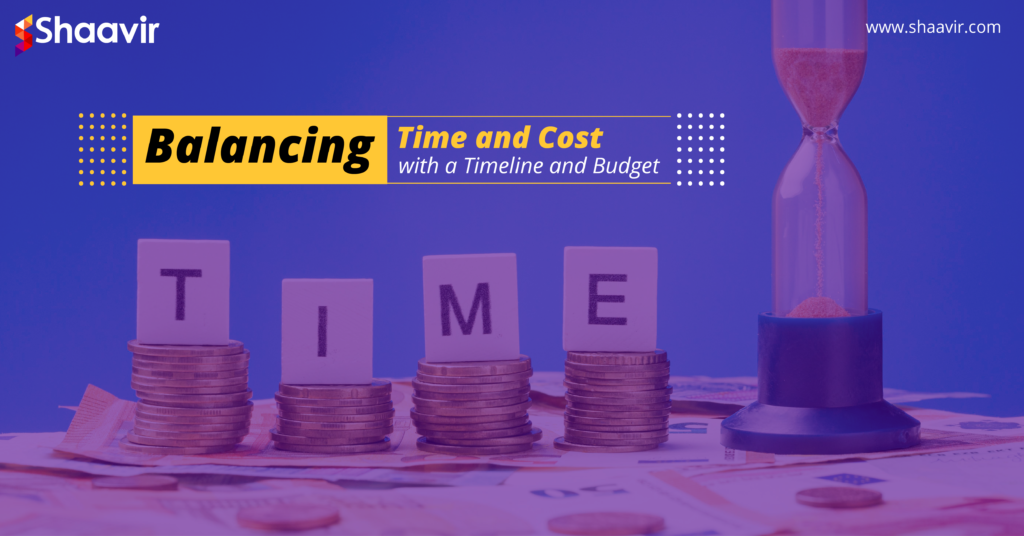In the dynamic world of project management, time and cost are two critical constraints that can make or break a project’s success. Striking a balance between these two factors is essential for ensuring project completion within the specified timeframe and budget. A well-defined timeline and budget serve as invaluable tools for project managers, enabling them to plan effectively, allocate resources efficiently, and monitor progress closely.
The Significance of a Detailed Timeline
A project timeline provides a visual roadmap for project execution, outlining the sequence of tasks, milestones, and deadlines. It helps project managers to:
- Establish Clear Expectations: A clear timeline sets realistic expectations for all project stakeholders, ensuring that everyone is on the same page regarding the project’s duration and key milestones.
- Plan Effectively: A timeline allows project managers to break down the project into manageable tasks, estimating the time required for each step. This structured approach facilitates effective planning and resource allocation.
- Track Progress: By comparing the actual progress against the planned timeline, project managers can identify potential delays or roadblocks and take corrective actions promptly.
- Maintain Focus: A timeline provides a sense of urgency and keeps the project team focused on completing tasks within the specified timeframes.
The Role of a Comprehensive Budget
A project budget outlines the estimated financial resources required to complete the project successfully. It helps project managers to:
- Control Costs: A detailed budget provides a framework for cost estimation, ensuring that project expenses are carefully considered and managed within the allocated funds.
- Allocate Resources Strategically: By understanding the cost breakdown of each task, project managers can allocate resources efficiently, prioritizing critical activities and avoiding unnecessary expenses.
- Monitor Financial Performance: Tracking actual expenses against the budgeted amounts allows project managers to identify potential financial issues early on and take corrective measures to stay within budget.
- Make Informed Decisions: A comprehensive budget provides valuable insights into the financial implications of project decisions, enabling project managers to make informed choices that align with project objectives and financial constraints.
Strategies for Balancing Time and Cost
Achieving a balance between time and cost requires careful planning, strategic decision-making, and effective resource management. Here are some strategies to consider:
- Prioritization: Identify critical tasks that must be completed within the specified timeframe and focus resources on those activities first.
- Resource Optimization: Utilize available resources efficiently, considering both human expertise and equipment.
- Risk Management: Proactively identify and mitigate potential risks that could impact the project’s timeline or budget.
- Communication and Collaboration: Maintain open communication channels with stakeholders to ensure alignment and address issues promptly.
- Change Management: Establish a clear process for evaluating and approving changes to the project’s scope or timeline to minimize cost overruns and delays.
Conclusion: The Art of Balancing Time and Cost
In the realm of project management, time and cost are not isolated entities; they are interwoven factors that influence the success or failure of a project. By developing a detailed timeline and a comprehensive budget, project managers can effectively manage these critical constraints, ensuring that projects are completed within the specified timeframe and budget while achieving the desired outcomes.
